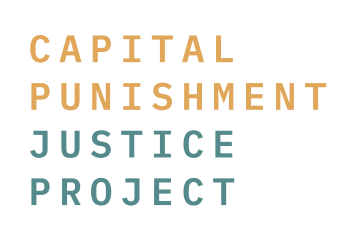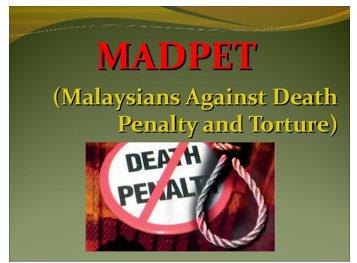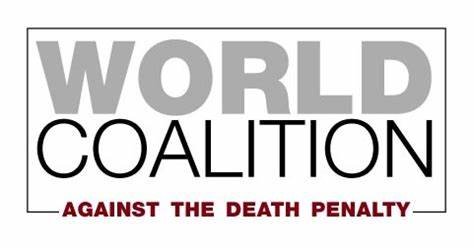Singapore: Authorities must end human rights crackdown and unlawful drug related executions
We, the undersigned seven organisations, are greatly alarmed at the deteriorating human rights situation in Singapore. Concerning developments since the beginning of October 2024 have included two more executions for drug related offences, in violation of international human rights law and standards, as well as further restrictions to the exercise of the right to freedom of expression by anti-death penalty activists.
We renew our call on the Singapore authorities to immediately establish a moratorium on all executions and cease the harassment of civil society representatives, as critical first steps.
We also urge the international community to step up pressure on the government of Singapore, to ensure that the human rights of those facing the death penalty in Singapore, as well as those campaigning against its use everywhere, are protected.
1. Use of death penalty against international human rights law and standards
Since the beginning of October 2024, the authorities of Singapore have carried out two more executions for drug related offences. Mohammad Azwan bin Bohari (Azwan), a Singaporean, was executed on 4 October, after being found guilty in 2019 of possession of 26.5 grams of diamorphine (heroin) for the purpose of trafficking.[1] The second execution was carried out on 16 October, after a Singapore man had his application for a stay rejected on the previous day.[2] He was convicted of possessing 52.75 grams of diamorphine (heroin) for the purpose of trafficking.
Four of the five executions known to have been carried out in Singapore so far this year were of people convicted of drug trafficking. The use of the death penalty for drug related offences violates international human rights law and standards, which restrict its use to the “most serious crimes”, most recently interpreted as referring to “crimes of extreme gravity involving intentional killing”.[3] Several UN bodies, including the International Narcotics Control Board, have repeatedly clarified that drug related offences do not meet this threshold.[4] Singapore is one of only five countries where Amnesty International confirmed drug related executions in 2023.[5]
Additionally, both men executed in October were sentenced to the mandatory death penalty, which means that the judges could not consider the particular circumstances of the offence or the background of the convicted person, also in violation of international law and standards.[6] Another troubling aspect is that the conviction in one of the two cases was reached with reliance on the legal presumption of trafficking under the Misuse of Drugs Act, based on the amount of drugs that he had been found with. When these legal presumptions are invoked, the burden of proof is shifted onto the defendant to be rebutted to the higher legal standard of “on balance of probabilities”. Legal presumptions of guilt violate the right to be presumed innocent – a peremptory norm of customary international law – and other fair trial guarantees under international human rights law that mandate that the burden of proving the charge rests on the prosecution.[7] In addition to this, presumptions of guilt have also had the effect of lowering the threshold of evidence needed to secure a conviction in capital cases.
We are also deeply alarmed that the executions proceeded while the two men had an appeal pending, in violation of international safeguards on the death penalty. The execution of Azwan was initially set for 19 April 2024 and stayed two days before it was due to be carried out, to allow for the consideration of a judicial application. A second execution notice for 4 October was given to Azwan on 30 September, despite him being party – together with 30 others – to a legal civil application filed before the High Court on 19 September. The application seeks a review of the constitutionality of provisions under the Post-appeal Applications in Capital Cases Act 2022.[8] The second man executed on 16 October was also party to the same ongoing civil proceeding.[9]
The government and the Court of Appeal of Singapore have justified the setting of executions in these circumstances by noting that the Post-appeal Applications in Capital Cases Act 2022, which came into effect on 28 June 2024 and which sets out the procedure through which applications for review in death penalty cases can be filed after the ordinary appeal has been finalised, applies to future cases only; and that the ongoing appeal did not seek to directly review the convictions and death sentences of those at risk.[10] In the narrow circumstances in which the death penalty may be imposed under international law – which do not include drug trafficking – the criminal justice system should allow a robust testing of the individuals’ right of review, particularly when someone’s life is at stake.
Constitutional challenges that ask the courts for scrutiny on the process through which the punishment of life or death is imposed might lead to judicial recommendations on safeguards beyond the specific questions covered in the application itself. By proceeding with the executions, the Singapore authorities have precluded such an outcome; and acted in violation of Safeguard No.8 of the UN Safeguards guaranteeing protection of the rights of those facing the death penalty, adopted by two UN bodies in 1984 without a vote, which states that “[c]apital punishment shall not be carried out pending any appeal or other recourse procedure or other proceeding relating to pardon or commutation of the sentence”.[11]
The October violations of this international safeguard add to concerns already highlighted in August 2024, when two men who were parties to pending civil applications were executed, with one of them also having a pending criminal review application;[12] and point to a pattern on the part of the authorities to disregard this clear international prohibition.
2. Relentless pursuit of executions highlights urgent need for a moratorium on use of death penalty
A chilling indication of the determination of the government of Singapore to pursue executions, as seen since April 2024, has been emerging also through other recent developments.[13] The two executions carried out in October were characterised by a shortened notice period of four days, compared to the timeline usually observed by the prison authorities of at least seven days. The execution warrant of Azwan bin Bohari was issued on 24 September and notified to him six days later, on 30 September.[14] The man executed on 16 October was informed of the date of his execution on 12 October 2024.[15] On 29 July, another person on death row was also given a four-day notice period before being executed on 2 August 2024.[16] On 3 October 2024, the Court of Appeal stated that, in June 2024, the Ministry of Home Affairs reviewed the practice of providing notification of execution, to shorten the notice period for those who had previously been issued an execution warrant and had received a stay after half of their notification period had passed.[17]
We are of the view that the death penalty always violates the right to life, and is the ultimate cruel, inhuman and degrading punishment. The shortened procedure adds cruelty and anxiety to an already stressful execution process, including by denying or limiting the opportunity for the family members to spend time with their beloved ones. It also creates further unfair limitations on a person on death row to access lawyers for the pursuit of legal proceedings.
The Administration of Justice (Protection) (Amendment) Bill, which was introduced in Parliament on 14 October 2024,[18] seeks to expand the scope of the circumstances that could amount to contempt of court under the Administration of Justice (Protection) Act 2016, to include any party or advocate, or any other person supporting a party or an advocate to begin a court proceeding, or multiple or successive court proceedings, when they know or ought to know that the proceedings are deceptive, fictitious or manifestly groundless; or involve the court being employed for some ulterior motive or improper purpose.
While regulation of judicial appeals to some degree can help protect against malicious litigation, if adopted these amendments would create further obstacles for those on death row that would significantly restrict their ability to file applications to stay their executions and seek the review of their convictions and death sentences; and stifle the support that they could get with the preparation of the applications, including from family members or others in the prison. Even in cases in which the irrevocable punishment of death is imposed, the Singapore authorities apply greater weight to the principle of finality of judgment and execution of the sentence, over reviews and testing of process safeguards that could result in a different sentencing outcome.
3. Harassment of anti-death penalty activism and repression of criticism
We condemn in the strongest terms the continued intimidation and climate of fear that the authorities have created around anti-death penalty activism in Singapore and demand that the harassment of activists ceases at once.
Since the beginning of October, the Ministry of Home Affairs issued three Correction Directions and Targeted Correction Directions under the Protection from Online Falsehoods and Manipulation Act (POFMA). POFMA orders have been used to target those who criticise the handling of death penalty cases in Singapore, with the broader effect of curtailing the right to freedom of expression and human rights activism in the country, as well as preventing fully informed debates on the ongoing use of the death penalty.
The first order was issued on 5 October, requesting the Transformative Justice Collective (TJC, a civil society group actively opposing the death penalty in Singapore), and specifically one of their activists, Kokila Annamalai, to post “factual corrections” on their social media accounts and publish the response of the government to the criticism of the handling of the execution of Azwan – a response which made no reference to restrictions to the use of the death penalty set out under international law and standards.[19] While posting the correction, the TJC rejected the claim by the government that they had “spread falsehoods” and noted the use of POFMA orders as “a political weapon used to crush dissent”.[20]
The second order was issued on 9 October, asking the Anti-Death Penalty Asia Network, based in Malaysia, to correct so-called “falsehoods” on their social media accounts relating to statements that were critical of the death penalty process in Singapore, as well as the targeting of the TJC and other individuals for speaking up against the death penalty.[21] Once again, the government’s factual correction made no reference to restrictions set out under international law and standards, both in relation to the death penalty and the protection of the right to freedom of expression.
On 11 October, following the non-compliance by Kokila Annamalai with the 5 October POFMA direction, the Ministry of Home Affairs issued a third order, requesting Meta Platforms, Inc. and X Corp. to alert users who have seen her relevant posts that they contain “false statements”. On 22 October, Kokila Annamalai publicly stated that she would not comply with the POFMA order, noting that “[i]t is a gross abuse of power to force those with an opposing view to discredit and humiliate ourselves, to publicly ‘confess’ to spreading falsehoods”.[22]
Additionally, on 3 October the Infocomm Media Development Authority (IMDA), acting in consultation with the Ministry of Home Affairs, refused to grant to the Transformative Justice Collective the license to show a multi-media exhibition around the World Day Against the Death Penalty (10 October). According to TJC members, the exhibition materials sought to draw attention to the history of Singapore’s death penalty regime, and voices of prisoners on death row and their families, but were found by the IMDA to “paint a misleading picture of the use of the death penalty in Singapore” and undermine “the integrity of public institutions and the administration of justice”.[23]
We stand by the activists of the TJC and reiterate our demand on the Singapore authorities to end the crackdown on human rights activism and ensure the protection of the right to freedom of expression for all. When seeking to protect people in Singapore from harm, the authorities must act in accordance with international human rights law, including that related to the protection of the right to freedom of expression. Restrictions to this right must be clearly and narrowly defined in law and conform to the strict tests of necessity and proportionality to a legitimate aim, rather than, in the case of POFMA and the refusal of the license for the exhibition, becoming a weapon for censorship.[24]
4. Recommendations
As in recent weeks the Supreme Court has considered and rejected applications filed by several men on death row, potentially exposing them to the risk of execution, raising awareness of the human rights issues associated with the use of the death penalty in Singapore is more critical than ever.
We call on the Government of Singapore to immediately:
Establish a moratorium on all executions, commute death sentences and review national legislation to bring it in line with international human rights law, pending full abolition of the death penalty.
End the harassment of anti-death penalty activists and civil society representatives.
Cease the use of POFMA orders to silence criticism and ensure that any legal provisions aimed at protecting national security or that unduly restrict the right to freedom of expression are reviewed so that they conform to international human rights law and standards, in order to guarantee the right to freedom of expression for all.
Review and amend all laws and regulations, and end all related policies and measures, that violate human rights, in particular the rights to life, a fair trial, freedom of expression, peaceful assembly and association, and ensure that any legal provisions aimed at protecting national security are clearly and narrowly defined and conform to international human rights law and standards.
We call on the international community to immediately take unified and stronger actions to urgently request:
An end to all executions in Singapore, as a first critical step towards abolition of the death penalty.
Respect of human rights of all, including the rights to freedom of expression, association and peaceful assembly.
An end to the harassment of anti-death penalty activists and civil society representatives.
The repeal of repressive legislation, and provisions in national legislation that do not fully comply with international human rights law and standards.
THIS STATEMENT IS CO-SIGNED BY:
Amnesty International
Capital Punishment Justice Project
ECPM – Together Against the Death Penalty
Harm Reduction International
MADPET – Malaysians Against Death Penalty and Torture
Taiwan Alliance to End the Death Penalty
World Coalition Against the Death Penalty
References
[1] Central Narcotics Bureau, “Execution of a Convicted Drug Trafficker - 4 October 2024”, 4 October 2024.
[2] Central Narcotics Bureau, “Execution of a Convicted Drug Trafficker - 16 October 2024”, 16 October 2024; Court of Appeal of Singapore, reference no.: [2024] SGCA 40, elitigation.sg/gd/s/2024_SGCA_40.
[3] Article 6(2) of the International Covenant on Civil and Political Rights; Safeguard No.1 of the UN Safeguards guaranteeing protection of the rights of those facing the death penalty, adopted through UN Economic and Social Council resolution 1984/50.
[4] UN Human Rights Committee, General comment No. 36 (2018) on article 6 of the International Covenant on Civil and Political Rights, on the right to life, CCPR/C/GC/36, 30 October 2018, para.35; Report of the Special Rapporteur on extrajudicial, summary or arbitrary executions (2012), UN Doc. A/67/275, para.122; UN Chief Executives Board, “What we have learned over the last ten years: A summary of knowledge acquired and produced by the UN system on drug-related matters”, UN Doc. E/CN.7/2019/CRP.10; Report of the International Narcotics Control Board for 2021, UN DOC. E/INCB/2021/1, para. 90.
[5] Amnesty International, “Death sentences and executions in 2023” (ACT 50/7952/2024), 29 May 2023.
[6] UN Human Rights Committee, General comment No. 36 (2018) on article 6 of the International Covenant on Civil and Political Rights, on the right to life, CCPR/C/GC/36, 30 October 2018, para.37.
[7] UN Human Rights Committee, General Comment No. 24: Issues relating to reservations made upon ratification or accession to the Covenant or the Optional Protocols thereto, or in relation to declarations under article 41 of the Covenant (Art. 41), para.8.
[8] Court of Appeal of Singapore, Mohammad Azwan bin Bohari v. Public Prosecutor, [2024] SGCA 38, elitigation.sg/gd/s/2024_SGCA_38.
[9] Court of Appeal of Singapore, reference no. [2024] SGCA 40, para.6, elitigation.sg/gd/s/2024_SGCA_40.
[10] Act 41 of 2022, https://sso.agc.gov.sg/Acts-Supp/41-2022/Published/20230109?DocDate=20230109.
[11] Adopted without a vote by the UN Economic and Social Council in its resolution 1984/50 of 25 May 1984; and endorsed by the UN General Assembly, without a vote, in resolution 39/118 of 14 December 1984.
[12] Transformative Justice Collective, “Urgent: Imminent execution in Singapore”, 1 August 2024; Joint statement, “Singapore: Authorities must end executions and stop targeting anti-death penalty activists to curb criticism”, 22 August 2024.
[13] Joint statement, “Singapore: Execution warrants issued despite pending legal proceedings”, 30 April 2024.
[14] The execution was carried out on 4 October. Court of Appeal of Singapore, Mohammad Azwan bin Bohari v. Public Prosecutor, [2024] SGCA 38, para.6, elitigation.sg/gd/s/2024_SGCA_38.
[15] Court of Appeal of Singapore, reference no. [2024] SGCA 40, para.7, elitigation.sg/gd/s/2024_SGCA_40.
[16] Court of Appeal of Singapore, Mohammad Azwan bin Bohari v. Public Prosecutor, [2024] SGCA 38, para.12, elitigation.sg/gd/s/2024_SGCA_38.
[17] Court of Appeal of Singapore, Mohammad Azwan bin Bohari v. Public Prosecutor, [2024] SGCA 38, para.12(b), elitigation.sg/gd/s/2024_SGCA_38.
[18] Bill no.34/2024 of 14 October 2024.
[19] Ministry of Home Affairs of Singapore, “Issuance of Correction Directions and Targeted Correction Direction under POFMA regarding Statements by Transformative Justice Collective concerning the Legal Processes for Prisoners Awaiting Capital Punishment and Prosecution of Drug Trafficking Charges”, 5 October 2024.
[20] Transformative Justice Collective, “Azwan faces execution in Singapore on 4 October”, 2 October 2024.
[21] Ministry of Home Affairs of Singapore, “Issuance of Correction Directions under POFMA regarding Statements by the Anti-Death Penalty Asia Network concerning the Legal Processes for Prisoners Awaiting Capital Punishment and Treatment of Anti-Death Penalty Activists”, 9 October 2024.
[22] Learning from the Margins, "I Defy: Why I am not complying with my POFMA Correction Direction", 22 October 2024.
[23] Transformative Justice Collective, “BLOCKED: Fighting for Life”, 7 October 2024.
[24] UN Human Rights Committee (HRC), General Comment No. 34, 12 September 2011, UN Doc. CCPR/C/GC/34, para 22.







